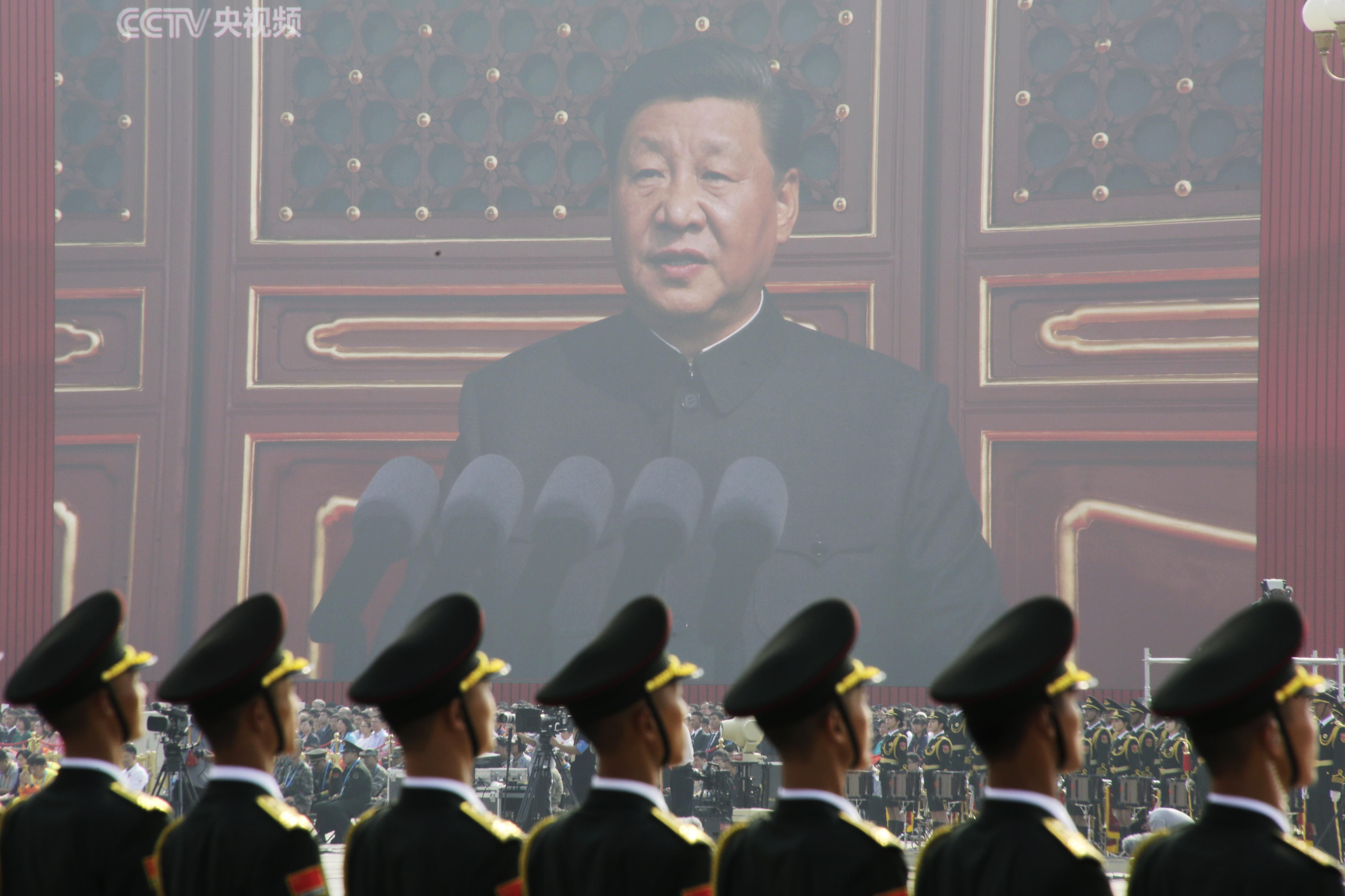"Who controls the past, controls the future; who controls the present, controls the past."
That slogan laid out the Party's sinister ploy to entrench itself in power by rewriting history in George Orwell's classic novel 1984. And it's what the ruling Communist Party now wants to do in China, where "Big Brother" Xi Jinping already oversees an authoritarian techno-surveillance state that in many ways exceeds the intrusion of Orwell's dystopian future.
The CCP's inner sanctum is in Beijing this week to hold its annual closed-door meeting. But this time it's done something rare by announcing one item on the agenda: an official resolution to revise China's historical narrative under its reign, to reflect Xi's take on the "correct" interpretation of party history — and by extension China's.
What the party comes up with won't just be an anodyne internal document only CCP nerds will obsess over. Xi's historical revision will influenceeverything in China — from foreign policy, to what's taught in schools or shown on TV and in films, to what constitutes the ultimate crime of disloyalty to the party — for an entire generation, if not longer.
From Mao, to Deng, to Xi. We've known for some time that Xi is the most influential Chinese leader since Deng Xiaoping, and arguably since Mao Zedong. Prior to Xi, only they have been able to rewrite the party's narrative arc on their own terms throughout the CCP's 100-year history.
Mao did it in 1945 to become the party's undisputed leader, then won the civil war and called all the shots for three decades. Deng did it in 1981 to call out Mao's excesses in the Great Leap Foward and Cultural Revolution, and to justify risky reforms that later turned China into an economic juggernaut.
Very soon Xi will forever be at their level. By drawing a direct historical line to him from Mao and Deng, the resolution will give Xi the ultimate CCP street cred he needs to guide China in the direction he wants.
In 2021, Xi is tinkering with China's past — and present — to pilot its future. He's cast himself as the natural heir to heavyweights Mao and Deng, without breaking with either to take something from both.
The saying goes that Mao made China stand up (a phrase he's famous for yet never actually uttered), and Deng made China get rich. The next step is for Xi to build on their legacies to make China "strong" — a superpower in its own right.
Wait, why does Xi even need to do this if he's already super powerful? After all, he's crushed all dissent within the party, gone after tech titans who were getting too rich, lifted presidential term limits, and now has Chinese kids studying how Xi "thinks."
In the near term, though, Xi cannot afford even a quibble as he embarks on his big plans to transform China. If no one questioned Mao or Deng when they were at the peak of their power, Xi must ensure no one will dare challenge him if he says, for example, that the Chinese economy must grow a bit less in order to become a more equal society. Or when the party decides next year whether Xi can "run" for an unprecedented third term in office.
What's more, Xi knows that as a "transformative" leader he won't even need a formal title to still be the big boss after he eventually steps down. (Fun fact: in the 1990s Deng wielded more influence behind the scenes as the head of China's bridge association than Jiang Zemin as president.)
Still, we've learned from recent Chinese history that rewriting it can have unintended consequences. Each time the party has reviewed its past, it also set in motion other stuff that almost broke its grip on power: Mao's Great Leap Forward caused the worst famine in history, and Deng's economic reforms led to a pro-democracy movement that shook the CCP to its core until it was brutally suppressed on the streets of Tiananmen in 1989.
Whatever China's all-powerful leader has in mind for the immediate future, many things could go south. A miscalculation on Taiwan, a financial crash if the real estate sector collapses, or failing on his zero-COVID strategy could all backfire — and Xi will be on the hook.More For You
Most Popular
In this Quick Take, Ian Bremmer reacts to President Trump’s State of the Union address, calling it “a rehashing of the greatest hits” with little new policy direction.
Small business hiring surged 7% above the 2024 average in December, led by a surprise rally in retail. But with uncertainty still historically high and mounting concerns over tariffs, can this momentum survive 2026? Explore the data behind the resilience of the US small business sector. Get the latest economic insights from Bank of America Institute.
